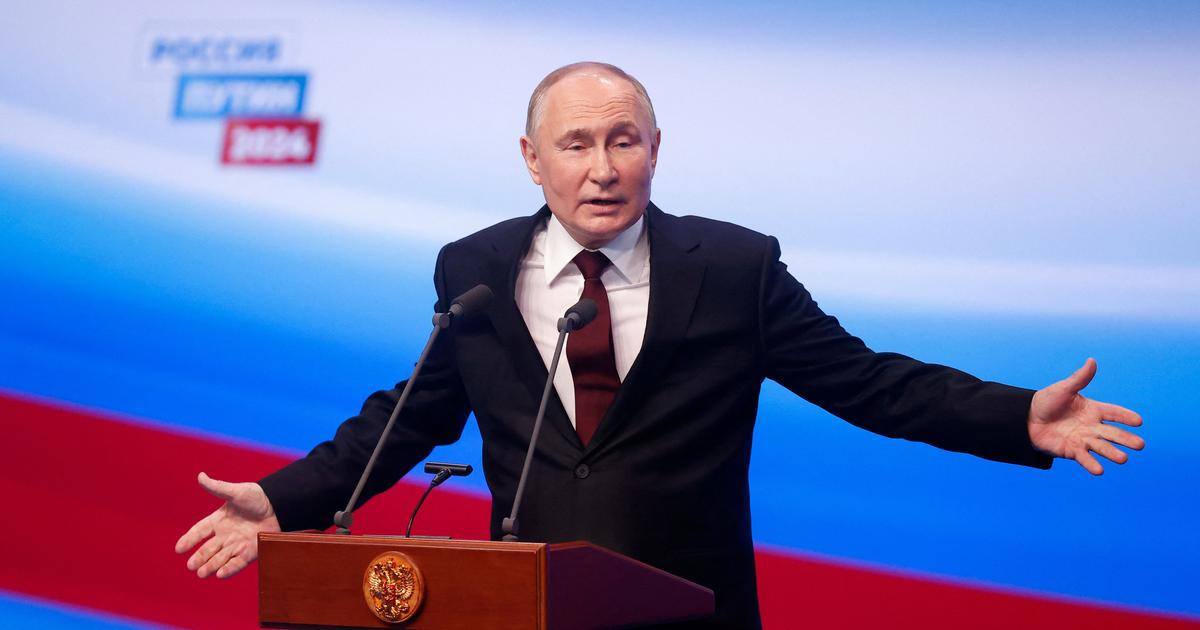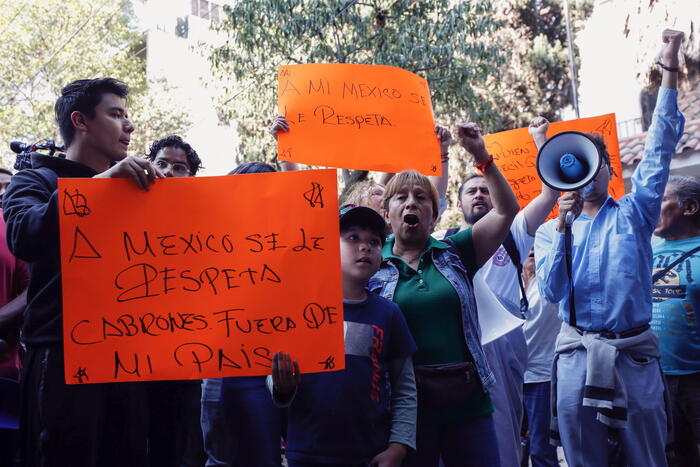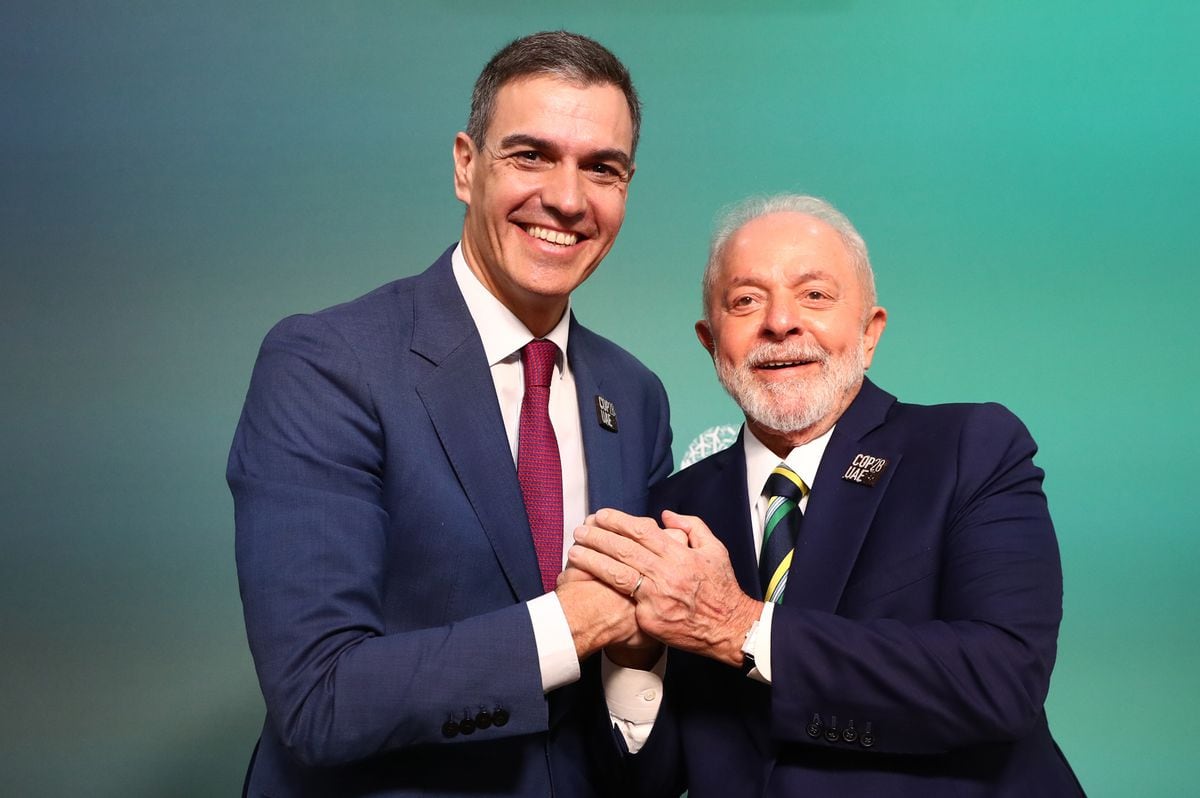The 22 countries of the Ibero-American Community will celebrate their 28th summit next Friday in Santo Domingo (Dominican Republic), which will be attended, except for last-minute changes, by 16 heads of state or vice presidents;
which means "very good attendance" for the first face-to-face meeting of this forum after the covid, in the opinion of Andrés Allamand (Santiago, 67 years old), former Chilean Foreign Minister who became the third Secretary General last February Ibero-American in 18 years, after Enrique Iglesias and Teresa Grynspan.
The summit will have as a special guest the high representative of the EU for Foreign Affairs, Josep Borrell.
Among those who have announced their attendance is the Venezuelan Nicolás Maduro, but not the Brazilian Luiz Inácio Lula da Silva.
Allamand received EL PAÍS last Friday,
Ask.
Is the fact that Lula prefers to travel to China than attend the summit a symbol?
Answer.
The Brazilian Government has made all the possible adjustments so that President Lula could be present, but unfortunately, there has been a conflict of dates and time zones.
I think we are going to have a message from President Lula and the assistance of [Foreign Minister Mauro] Vieira, which reflects Brazil's interest in being represented at the highest level.
Q.
During the term of Jair Bolsonaro, Brazil turned its back on the Ibero-American community...
R.
Bolsonaro adopted a behind-the-scenes policy and Lula's approach is the opposite, he has said that Brazil will return to the international scene with great force.
It seems like good news to me.
Brazil is a global act and must have a foreign policy commensurate with its geostrategic stature.
Q.
China is already Latin America's largest trading partner.
R.
From all countries, except Mexico.
p.
And in terms of investment?
R.
The figures are difficult to quantify, because Chinese investments often come from third countries, but there is no doubt that in recent times China has greatly increased its presence in the region, starting in a first phase of commercial activities, but now also with investments in different fields.
Suddenly, China has become very strong in Latin America.
Q.
Is it because Europe has disengaged and China has filled the gap?
R.
I believe that there have been emergencies that have diverted attention: the 2008 crisis, the situation in the East, migration from Africa... Emergencies can explain the lack of attention that I see today, both in Europe and in Latin America, cheer up to remedy.
There are multiple reasons for this to happen, and not just the geopolitical ones related to China.
First, there is a convergence of interests.
Latin America has what Europe needs and vice versa.
I am thinking, for example, of lithium, a strategic mineral for the future.
Secondly, they can agree on an agenda of common issues that have a global impact, such as climate change, migration or organized crime.
Finally, the world is undergoing a reconfiguration process and it is logical that countries, based on their affinities in values or institutions,
forge alliances to influence the international stage.
I believe that there are objective reasons for a relaunch of relations between Europe and Latin America and the Spanish presidency of the EU, in the second half of this year, is a great opportunity.
Within this framework, a European Union-Celac [Community of Latin American and Caribbean States] summit will be held, which has not met since 2015.
Andrés Allamand, during the interview.
Luis Sevillano
Q.
For there to be a relaunch, the revision of the EU agreements with Mexico and Chile and, above all, the negotiation with Mercosur must be unblocked.
R.
It is difficult to understand that the negotiation of these agreements lasts forever.
Unlocking them would be a sign that this relaunch is not just rhetorical, but real.
Along with this, the Spanish presidency of the Union could be expected to advance in a political articulation that maintains the fluidity of relations between Latin America and Europe and prevents eight years from going by without meeting.
It is also very important that there is a reinvigoration of investments;
And this time in a double sense: obviously, European investments are well received in the region, but there is also a process of landing multi-Latin funds in Europe through Spain and Portugal.
Q.
Latin America has problems accessing international credit.
A.
It needs financing.
The fiscal slack framework is very tight, due to the efforts that had to be made in the face of the covid crisis, domestic savings rates are low and foreign investment has not had the required caliber either.
For this reason, it is necessary to think about a new international financial architecture that is attentive to the needs of middle-income countries.
In this sense, the Brazilian presidency of the G-20 [in 2024] is very relevant, as is the presence in this forum of Mexico, Argentina and Spain.
We have the power to make the points of view of the region heard.
Q.
Latin America is divided over the invasion of Ukraine.
Is it possible to approve a joint resolution in Santo Domingo?
R.
There is no unanimous position on the war in Ukraine, although there is a very majority: 17 countries voted in favor of the UN resolution, two against [Nicaragua and Venezuela] and three abstained [Cuba, Bolivia and El Salvador ].
An eventual pronouncement on the war in Ukraine is open to the decision of the leaders, but any agreement must be adopted unanimously.
Q.
With Borrell at the top, it is impossible not to talk about it.
A.
It is likely to be addressed, [but] whether or not a resolution is adopted will depend on consensus.
Q.
Can Latin American leaders meet without discussing the situation in Nicaragua, where the regime turns opponents into pariahs?
Q.
This issue is not on the agenda, but the summit has an open agenda.
Any country can raise an issue that it considers important.
It happened in the past and it is likely to happen now.
Q.
In 2010 a democratic clause was approved to suspend a country where there is a constitutional break.
R.
The Ibero-American Community has a democratic clause, but it is based on assisting that legitimate government that is threatened by a riot or coup.
The clause is not applicable to this case, the Government of Nicaragua would have to invoke it.
Q.
You have warned that political instability is blocking development in the region.
R.
Although it is not up to me to single out any country, it would be absurd not to recognize that there are problems of democratic governance in the region.
Exist.
Apart from those derived from the institutional political design, there are common problems of polarization and political fragmentation.
The Achilles heel of the presidential regime is the complex relationship with the legislative branch.
There is a growing divorce between the two and, when there are 20 political parties in a Parliament, the search for agreements is very complex.
Political polarization often means that the second rounds are contested between candidates who have little support.
There is an issue to resolve.
Follow all the international information on
and
, or in
our weekly newsletter
.
Subscribe to continue reading
Read without limits
Keep reading
I'm already a subscriber





/cloudfront-eu-central-1.images.arcpublishing.com/prisa/GZBJJXO3EZE2HLSP5ZRRKYYYOY.JPG)









